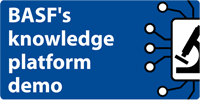Content
Grounded in original research, Jinfo Content helps you turn our insight into action on critical information challenges.
Available through a Jinfo Subscription, our reports and recorded webinars bring you practical ideas, case studies, tips and models for change.
Filter the list below:
 RSS and Scholarly Journal Tables of Contents: the ticTOCs Project, and Good Practice Guidelines for Publishers
RSS and Scholarly Journal Tables of Contents: the ticTOCs Project, and Good Practice Guidelines for Publishers
30th October 2008
What do you get when you combine RSS technology with the Table of Contents of scholarly journals? An efficient way to keep up to date, share and re-use information - as long as the feed is designed properly. Lisa Rogers shares her experiences with the ticTOCs project and provides a roadmap for success.
 If they only knew: Finding competitive intelligence from the websites of your competitors and their friends
If they only knew: Finding competitive intelligence from the websites of your competitors and their friends
29th October 2008
Even though companies have become smarter about securing information on their web sites, competitive intelligence researchers can still find valuable nuggets of information if they know where and how to look. Arthur Weiss presents some sleuthing techniques to help shed light on competitor's alliances, product plans and strategies.
 Introduction to Federated Search
Introduction to Federated Search
9th October 2008
Federated search is a powerful tool for organisations with multiple databases and content sets, but it is often misunderstood. In this clear introduction, expert Jill Hurst-Wahl lays out what federated search does and does not do well and identifies characteristics of organisations 'ready' for federated search. If you've been fielding questions (or have your own) about a search solution that works 'like Google' but inside your firewall, this is a great piece to share with colleagues.
 Asia Pacific Region: Consumer Markets and Industries: Part 2
Asia Pacific Region: Consumer Markets and Industries: Part 2
8th October 2008
As the Asia-Pacific countries take on more important roles in the world economy, demand for research on consumer markets and product trends in the region continues to grow both domestically and globally. This extract from the FUMSI Asia-Pacific Research Resources, part of the Regional Research Series, written by Jenny Zhan (the author of that report) and Pam Foster, outlines key market research tools for the region.
 Asia Pacific Region: Consumer Markets and Industries: Part 1
Asia Pacific Region: Consumer Markets and Industries: Part 1
7th October 2008
As the Asia-Pacific countries take on more important roles in the world economy, demand for research on consumer markets and product trends in the region continues to grow both domestically and globally. This extract from the FUMSI Asia-Pacific Research Resources, part of the Regional Research Series, written by Jenny Zhan (the author of that report) and Pam Foster, outlines key market research tools for the region.
 Second Life for Business: Ten Techniques
Second Life for Business: Ten Techniques
7th October 2008
Virtual worlds (VWs), like Second Life and World of Warcraft, have been all the rage on the consumer side for some time, but it's not always clear whether or how businesses can make use of those brave new worlds. Sheila Webber and her avatar provide tips for making the most of a corporate presence in a virtual world.
 How the Semantic Web Will Change Information Management: Three Predictions
How the Semantic Web Will Change Information Management: Three Predictions
7th October 2008
Much has been said on the topic of the Semantic Web, but it's not always easy to gauge how it will change the way we work. Silver Oliver provides an overview of how the Semantic Web will affect users and applications, not to mention the role of the information professional.
 Wikis at Sun Microsystems: The Ongoing Evolution
Wikis at Sun Microsystems: The Ongoing Evolution
7th October 2008
Since their start as a grassroots collaboration tool inside Sun Microsystems, wikis have come a long way. Scott Brown describes the evolution of wikis inside the enterprise and looks ahead at the role they may play for the company in the future.
 Making a Difference to Patient Care: Using Evidence Based Medicine
Making a Difference to Patient Care: Using Evidence Based Medicine
2nd September 2008
Evidence-based medicine (EBM) is a means of aiding doctors find information to optimise the care they give their patients. While some worry about the influence that health economics has on the adoption of EBM, Zena Woodley provides real-world examples of EBM success from information practitioners.
 Corporate Blogging: How To Be Open
Corporate Blogging: How To Be Open
2nd September 2008
Corporate blogging is on the increase, but what are the success factors for companies who use the technology well? Nick Reynolds relays his own experiences and tips for corporate bloggers, based on his role as editor for the BBC's Internet blog.
Register for our next Community session:

BASF's knowledge platform demo
10th March 2026
Latest on our YouTube channel:
Read on the Blog:
February 2026 update
4th February 2026
- March 2026 update
3rd March 2026 - Seven priorities for information leaders in an AI-enabled environment
24th February 2026 - From researchers to strategic advisors – information managers at a crossroads
11th February 2026
- Licensed content and AI (Community) 24th March 2026
- BASF's knowledge platform demo (Community) 10th March 2026
- Team roles and AI (Community) 26th February 2026